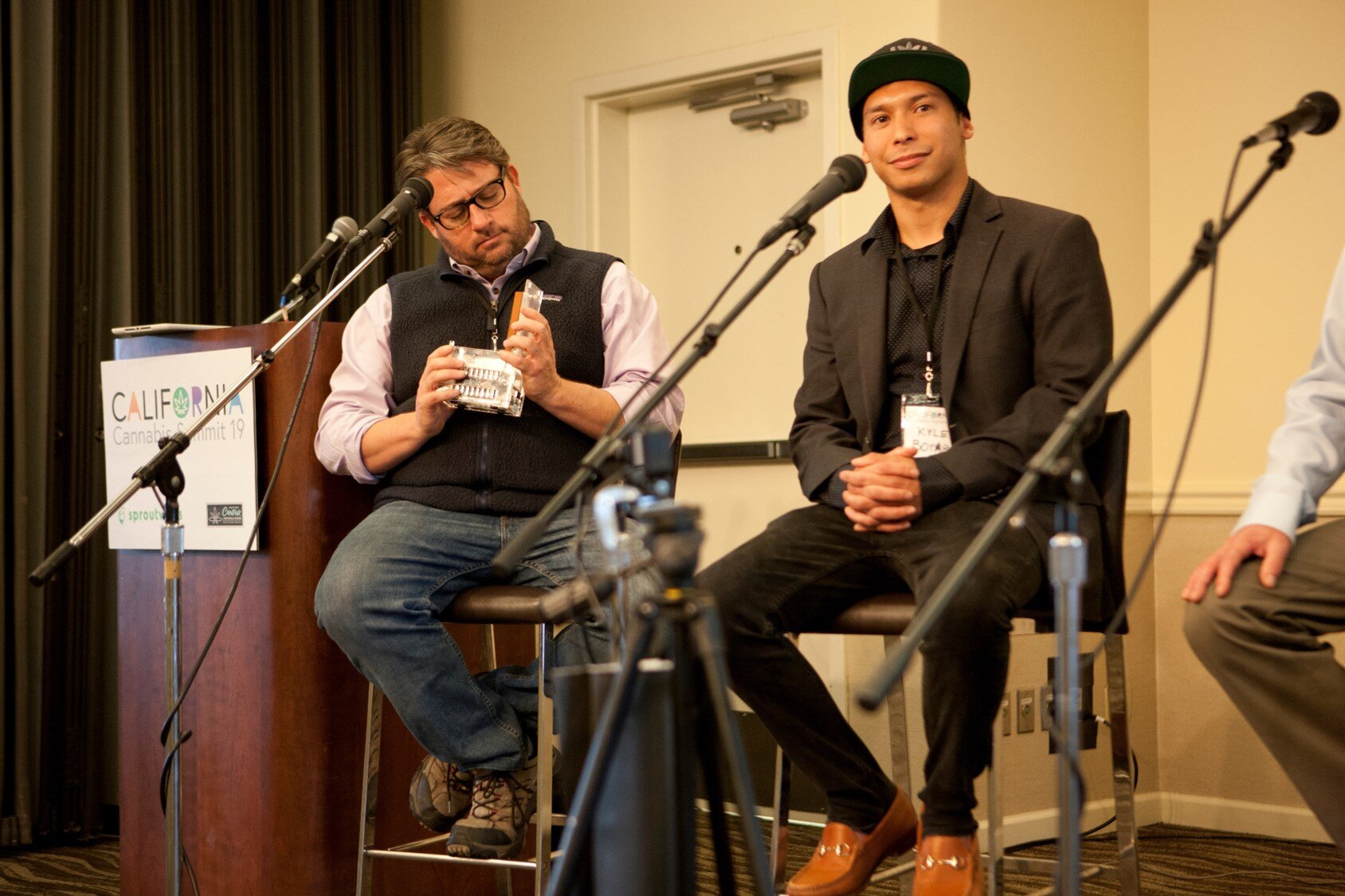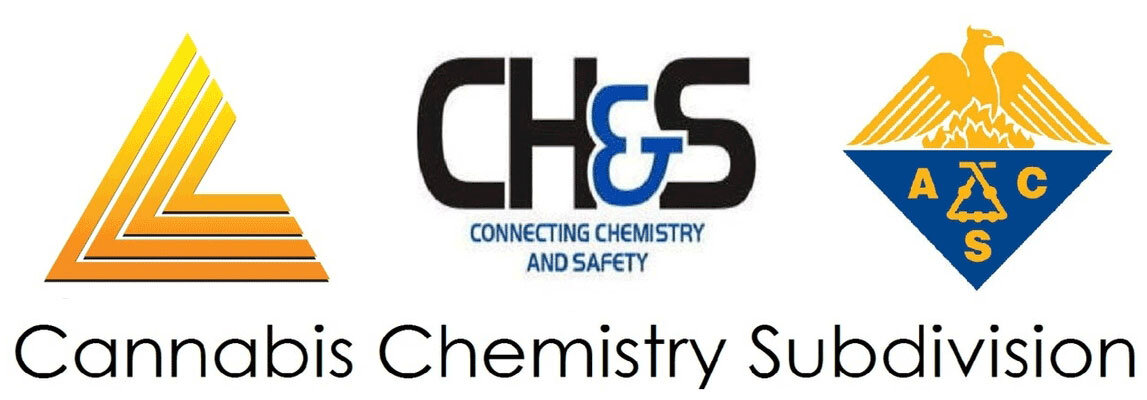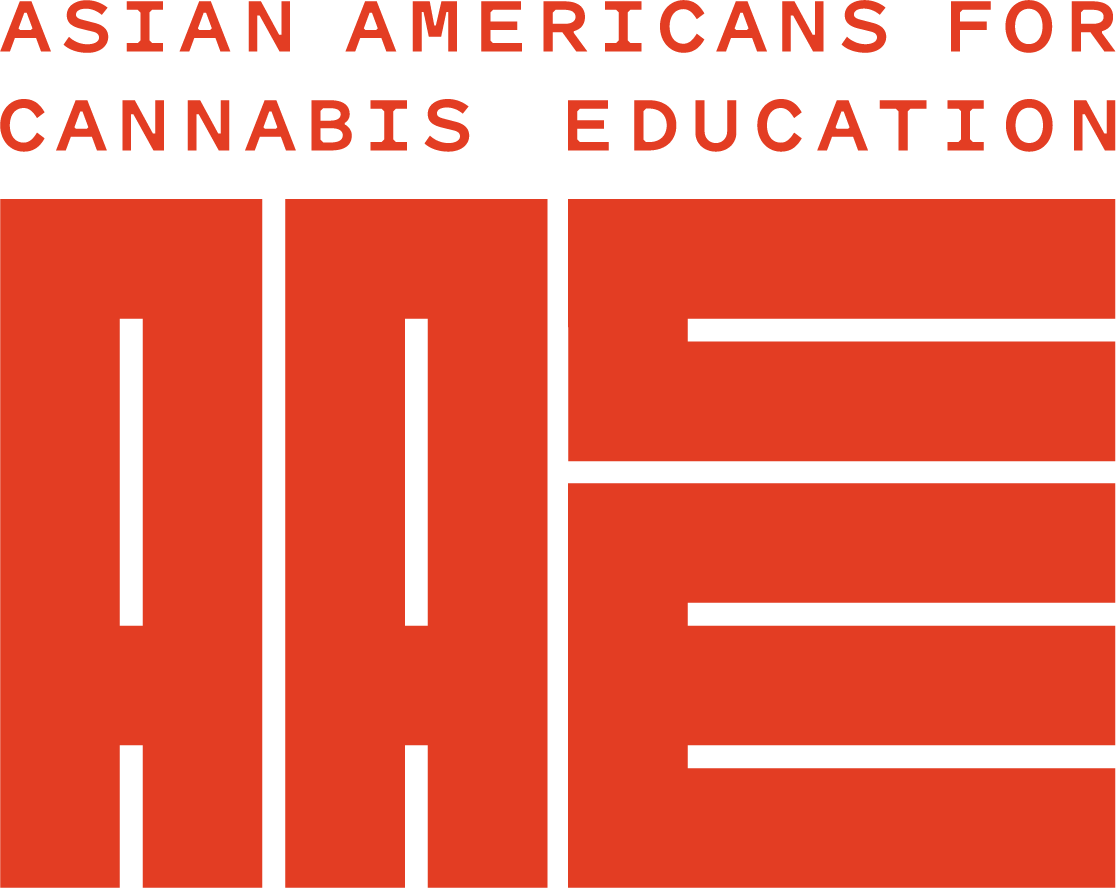AACE INTERVIEW: KYLE BOYAR / VICE CHAIR OF THE CANNABIS CHEMISTRY SUBDIVISION
Kyle speaking at the CannMed 2019 conference. Photo Credit: Ginger Michele (IG: @gingermichele)
How do I describe Kyle? Besides hitting all the dominant genes for an Asian for neurobiology, microbiology, and analytical chemistry, he also is a marketer, entrepreneur, and is the principal at KB Consultations, Vice-Chair of the Cannabis Chemistry Subdivision and a cannabis advocate which makes him an outlier as well. In our advocacy, we need to bring cannabis education to Asian Americans, and we are fortunate to have Kyle at the forefront as a leader and educator. - Ophelia Chong
How did you enter the cannabis industry?
I began my career in cannabis at SC Laboratories, one of the first cannabis testing laboratories in the country based in Santa Cruz, CA. At the time I was studying Neuroscience at UC Santa Cruz and was looking at any and all options to stay in town. This job was well aligned with my background and interest in pursuing a career in cannabis science. During this time, I was also very involved in the electronic dance music community and frequently organized my own events. It was a fortunate introduction at one of my events through a mutual friend with one of the founders that I obtained an internship there eventually leading to my position as a Laboratory Manager.
Did you do research into cannabis before entering?
I always had an interest in cannabis since I was a teenager and used throughout high school and college. By the time I entered the industry I was already well seasoned in my understanding of the plant having grown my own and made my own concentrates in college.
How does your family feel about your cannabis businesses?
Initially, my family was not all that thrilled to find out that after helping put me through an expensive UC education that I was to start working the cannabis industry as a lowly laboratory technician. Gradually, as they began to see the tides turn especially with the release of Sanjay Gupta's: "I Was Wrong About Weed" and other pivotal changes such legalization in Colorado and beyond, they began to understand that this was no longer an underground and illicit trade and truly had therapeutic benefits for a variety of individuals. Additionally, they began to see that I truly was interested in the science behind it and took initiative beyond my training in college to better understand the mechanisms by which cannabis works as a medicine. The combination of these eventually led them to understand that this industry was becoming more legitimate and mainstream and that I was interested in making a positive impact by ensuring products were safe and that there was scientifically sound reasoning behind its use as a medicine. Nowadays, my parents cheer me on from the sidelines and occasionally are present at some of my presentations. I'm grateful that today they fully understand the reasons behind my involvement in the industry.
What is the most frequent question you are asked about cannabis?
A: From recreational and medical users I am frequently asked about what companies produce high-quality products and what attributes to look for in these products. I also have expertise in the cannabis microbiome and microbial safety testing for cannabis so I am often asked about this in the context of cultivation practices and laboratory procedures. Additionally, I recently performed a pilot study surrounding heavy metal contaminants in cannabis vaporizer cartridges so many concerned vape consumers have reached out to me with questions about hardware and harm reduction surrounding vaping.
What is your favorite way of ingesting cannabis?
I'm a fan of using flower vaporizers, bongs, and smoking joints, spliffs, and blunts. I am tapering off on the latter due to the health risks associated. I also vape oils and dab occasionally but I have a strong preference for the flower as I believe that processing of the plant does not deliver optimal benefits.
Where do you see the cannabis industry in five years?
Legalized, tightly regulated, and heavily taxed. I expect that cannabis will eventually be accepted as a medicine universally however only standardized pharmaceutical grade formulations will be allowed in medical settings. Additionally, all product manufacturers will be fully GMP and testing will be mandated for all cannabis products including hemp.
Why do you think some Asians are against cannabis?
There is still a large stigma surrounding cannabis in many Asian countries and just because it has started to become accepted in the United States doesn't erase many years of seemingly embedded perspectives. It's my hope that with education and advocacy we can start to shift the Asian American culture away from this stigma.
Kyle Boyar on Linkedin
Bio:
Kyle Boyar is a cannabis scientist with a background in neuroscience, microbiology, and analytical chemistry that has been working in the industry for seven years. He received his Bachelor’s degree in Neuroscience from the University of California Santa Cruz in 2012 and has worked extensively in cannabis testing having previously been employed as a Field Application Scientist with Medicinal Genomics and as a Laboratory Manager with SC Laboratories. Kyle currently operates his own consulting firm KB Consultations and serves as Vice-Chair for the American Chemical Society's Cannabis Chemistry Subdivision as well as the Chairman for the ElSohly Award. His research interests focus on cannabis testing methodologies as well as product development and formulation.




